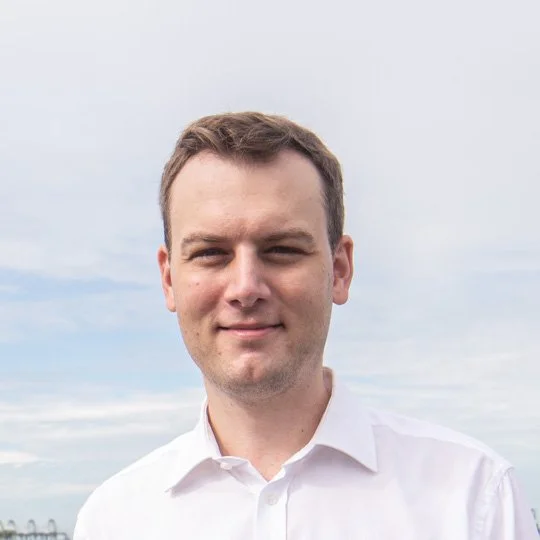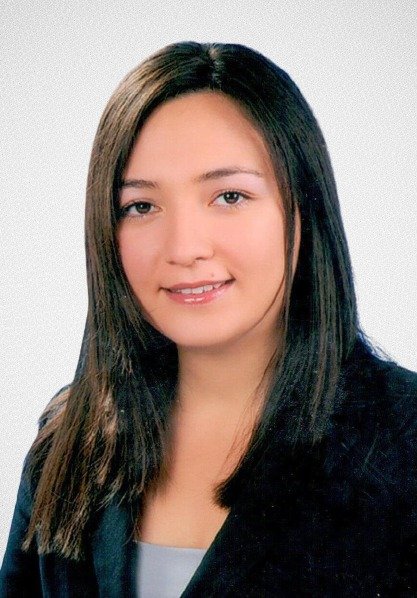
November 14, 2023 — Istanbul, Turkey
BuildSys 2023 Int’l Workshop on Cyber-Physical-Social Infrastructure Systems (CPSIS)
The BuildSys CPSIS’23 Workshop brings together researchers and industry practitioners to explore the development and advancement of cyber-physical-social infrastructure systems capable of explicitly enhancing social (i.e., human-centered) benefits of the built environment.
Call for papers:
Cyber-physical systems (CPSs) have radically transformed engineering solutions over the last decade and garnered considerable attention, improving infrastructure performance through the combination of sensing, computing, and control. CPSs have even expanded to include human-in-the-loop control, where humans serve as operators or supervisors. While these paradigms have been wildly successful for the design and operation of physical systems decoupled from—or weakly coupled to—human social contexts, it is limiting to study physical systems in a vacuum, that is, without explicitly accounting for their interactions with the social systems they are designed to serve. This traditional approach has left many promising applications of CPSs to human-oriented systems—or cyber-physical-social infrastructure systems (CPSISs)—completely untouched and exacerbated inequities in community infrastructure. There are entirely unexplored social benefits derived from the built environment that have yet to be scientifically understood and exploited. This workshop focuses on showcasing advances in the theory and tools used to support CPSISs, which promise the design, management, and control of physical spaces and the built environment in ways that explicitly and measurably contribute to social objectives (e.g., productivity, sociability, co-design and collaboration, well-being, accessibility) and determine whether social capital develops. Here, the social context from which CPSISs emerge should be a top priority, meaning that—by design—responsible sensing technologies and approaches should be developed and implemented to prioritize user privacy.
The workshop, which will be co-located with ACM BuildSys 2023, is soliciting submissions that explore the scientific understanding of CPSISs as they relate to supporting social objectives and the cultivation of social capital.
Topics of interest include, but are not limited to:
– Challenges and opportunities for CPSISs
– Exploration of computational modeling frameworks that characterize and predict how people benefit from infrastructure design and interventions
– Theoretical contributions to CPSISs brought about by human or community constraints and/or challenges
– Methodologies for the measurement/quantification of social benefits derived from the built environment
– Privacy preserving technologies and approaches to monitoring human-human and human-infrastructure interactions
– Applications highlighting the need or use of a CPSIS solutions (e.g., design of the built environment to support productivity, sociability, co-design and collaboration, well-being, accessibility)
Paper Types:
The workshop is soliciting original notes and papers for proceedings publication and oral presentation (3-8 pages). In addition to full papers, shorter notes meeting the page requirements are encouraged to (1) support younger researchers and research teams entering this field of research to share their work, (2) attract industry participants that may not be able to devote resources to a full paper, and (3) attract novel and multidisciplinary research topics that are not yet fully developed and that can catalyze discussion among the workshop attendees and readers. While Notes papers are not expected to have extensive evaluations, they will be reviewed based on the novelty of their ideas, potential for impact, and quality of presentation
Important Dates:
Submission deadline: September 01, 2023 September 15, 2023 (11:59:59pm AOE)
Notifications: September 18, 2023 September 25, 2023 September 30, 2023 (11:59:59pm AOE)
Camera-ready submission: October 01, 2023 October 08, 2023 (11:59:59pm AOE)
Workshop: November 14, 2023
Submission Guidelines:
Submitted papers must be unpublished and must not be currently under review for any other publication. Paper submissions must be between 3-8 single-spaced US Letter (8.5"x11") pages, including including figures, tables, references, and appendices. All submissions must use the LaTeX (preferred) or Word styles found here. Latex submissions should use the ‘sigconf’ document class. Authors must make a good faith effort to anonymize their submissions by (1) using the "anonymous" option for the class and (2) using "anonsuppress" section where appropriate. Please note that ACM uses 9-pt fonts in all conference proceedings, and the style (both LaTeX and Word) implicitly define the font size to be 9-pt. Please refer to this former publication chair's Note as well as the User Guide of the new class. Accepted submissions will be available on the ACM digital library on the first day of the conference. All papers must be in Adobe Portable Document Format (PDF).
General Chair:
Katherine Flanigan (Dept. of Civil and Env. Engineering, Carnegie Mellon University)
Technical Program Committee:
Sirajum Munir (Bosch Research and Technology Center)
Mario Bergés (Dept. of Civil and Env. Engineering, Carnegie Mellon University)
Christopher McComb (Dept. of Mechanical Engineering, Carnegie Mellon University)
Hugo Villasanti (Dept. of Mechanical Engineering, University of Michigan)
Burcu Akinci (Dept. of Civil and Env. Engineering, Carnegie Mellon University)
Nathan Brown (Architectural Engineering, Penn State University)
Jerry Wang (Dept. of Civil and Env. Engineering, Carnegie Mellon University)
Additional Technical Program Committee members to be announced shortly.
Registration and Travel Grants:
For information about registration and travel grants, please refer to BuildSys Registration.
Workshop Agenda:
Please meet at the BuildSys/SenSys registration and conference area in the main building (“Building B”) on the campus of Bahcesehir University (https://sensys.acm.org/2023/venue/). The workshops will be in the connected Buildings A and D. Information on room assignments will be available on site the morning of the workshop. For those attending virtually, please check your email and calendar for the Zoom invite.
10:20 - 10:30am Opening Remarks: Workshop Chair
10:30 - 11:20am Keynote 1: Filip Biljecki, Assistant Professor, Dept. of Architecture, National University of Singapore
Advancing Urban Modeling with Emerging Geospatial Datasets and AI
Bio: Dr. Filip Biljecki is an Assistant Professor at the National University of Singapore and the founder of the NUS Urban
Analytics Lab. He holds an MSc and PhD degree from the Delft University of Technology in the Netherlands. Dr. Biljecki’s
research and teaching are converging geomatic engineering, geospatial technologies, and urban data science to
support digital twins and data-driven urban planning.
11:20 - 11:25am Break
11:25am - 12:05pm Session 1: Developing “Tools of the Trade”
Exploring the Potentials and Challenges of Cyber-Physical-Social Infrastructure Systems for Achieving Human-Centered Objectives
M Doctorarastoo (Carnegie Mellon University), KA Flanigan* (Carnegie Mellon University), M Bergés (Carnegie Mellon University), C McComb (Carnegie Mellon University)
Measuring Success, One Sensor at a Time: A Sensing Infrastructure for Optimal Smart Office Environments
B Li, A Tavakoli (University of Virginia), A Wang (University of Virginia Biocomplexity Institute), N Kaur, L Barnes (University of Virginia), A Doryab (University of Virginia), A Heydarian* (University of Virginia)
Modeling Human Behavior in Cyber-Physical-Social Infrastructure Systems
M Doctorarastoo (Carnegie Mellon University), KA Flanigan* (Carnegie Mellon University), M Bergés (Carnegie Mellon University), C McComb (Carnegie Mellon University)
Skeleton-based Human Action Recognition in a Thermal Comfort Context
J Martins (Carnegie Mellon University), KA Flanigan* (Carnegie Mellon University), C McComb (Carnegie Mellon University)
12:05 - 12:20pm Session 1 Panel
12:20 - 12:45pm Breakout Groups
12:45 - 1:45pm Lunch
1:45 - 2:15pm Session 2: CPSIS in the Urban Environment
A Dynamic Urban Digital Twin Integrating Longitudinal Thermal Imagery for Microclimate Studies
V Ramani (Berkeley Education Alliance for Research in Singapore), M Ignatius (National University of Singapore), J Lim (National University of Singapore), F Biljecki (National University of Singapore), C Miller* (National University of Singapore)
Street-Level Urban Gravity: A Quantum System Approach to Human-Centered Urban Space Design
K Kavee (Carnegie Mellon University), KA Flanigan* (Carnegie Mellon University)
Online Confirmation-Augmented Probabilistic Topic Modeling in Cyber-Physical Social Infrastructure Systems
J Xie (Georgia Institute of Technology), C Salley (Georgia Institute of Technology), N Mohammadi* (Georgia Institute of Technology), JE Taylor (Georgia Institute of Technology)
2:15-2:30pm Session 2 Panel
2:30 - 2:55pm Breakout Groups
2:55 - 3:15pm Break
3:15 - 4:05pm Keynote 2: Semra Çomu Yapıcı, Associate Professor, Dept. of Civil Engineering, Bogazici University
Digital Transformation of Safety Practices in the Construction Industry
Bio: Dr. Semra Çomu Yapıcı obtained her doctoral degree in Civil Engineering from Virginia Tech University in 2012. She
completed her undergraduate studies in Civil Engineering at Bogazici University and thereafter relocated to the United
States in 2008 to pursue graduate studies. In 2010, she obtained her Master of Science degree from Columbia University,
where she was the recipient of the prestigious Fulbright Scholarship. Dr. Çomu Yapıcı's research focuses on advanced
occupational health and safety management, virtual environments, wearable technologies, the impact of physiological
parameters on workplace occurrences, risk management, Building Information Modeling (BIM), and digital twins.
4:05 - 4:45pm Session 3: CPSIS Applications
OccuVAE: Integrating Unsupervised Occupancy Inference in Data-driven Energy Modeling for Human-centric Operation
Y Zhang (EPF Lausanne), A Sonta* (EPF Lausanne)
Empowering User-Centered Carbon Management: Bridging Individual Preferences and Sociotechnical Advancements
A Souza* (University of Massachusetts Amherst), M Shenoy (University of Massachusetts Amherst), C Zaharia (University of Toronto)
Quantifying the Decarbonization Potential of Flexible Loads
P Bovornkeeratiroj (University of Massachusetts Amherst), N Bashir* (University of Massachusetts Amherst), V Deulkar (Plaksha University), B Balaji (Amazon), P Shenoy (University of Massachusetts Amherst), D Irwin (University of Massachusetts Amherst), M Hajiesmaili (University of Massachusetts Amherst)
A Real-world District Community Platform as a Cyber-Physical-Social Infrastructure System in the Energy Domain
J Galenzowski* (Karlsruhe Institute of Technology), S Waczowicz (Karlsruhe Institute of Technology), S Meisenbacher (Karlsruhe Institute of Technology), V Hagenmeyer (Karlsruhe Institute of Technology), R Mikut (Karlsruhe Institute of Technology)
4:45 - 5:00pm Session 3 Panel
5:00 - 5:20pm Break
5:20 - 5:50pm Breakout Groups
5:50 - 6:00pm Closing Remarks (Workshop Chair)

